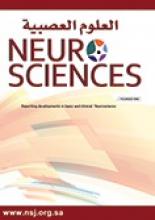17 November 2015 ¦ GENEVA - Climate change is the defining issue for the 21st century.
According to WHO estimates, climate change is already causing tens of thousands of deaths every year - from shifting patterns of disease, from extreme weather events, such as heat-waves and floods, and from the degradation of air quality, food and water supplies, and sanitation.
The upcoming United Nations Climate Change Conference (COP-21) in Paris offers the world an important opportunity to not only reach a strong international climate agreement, but also to protect the health of current and future generations. WHO considers the Paris treaty to be a significant public health treaty – one that has the potential to save lives worldwide.
In 2012, WHO estimated 7 million people died from air pollution-related diseases, making it the world’s largest single environmental health risk. It is predicted that climate change will cause an additional 250 000 deaths per year from malaria, diarrhoea, heat stress and under-nutrition between 2030 and 2050. Children, women and the poor in lower income countries will be the most vulnerable and most affected, widening health gaps.
Not only are ways to combat climate change already known and well-documented, they can bring important health gains. As WHO’s new series of climate change and health country profiles illustrate, investments in low-carbon development, clean renewable energy, and strengthening climate resilience, are also investments in health.
Implementing proven interventions to reduce emissions of short-lived climate pollutants, like black carbon and methane, for example achieving higher vehicle emissions and efficiency standards, would be expected to save approximately 2.4 million lives a year and reduce global warming by about 0.5°C by 2050. Placing a price on polluting fuels to compensate their negative health impacts would be expected to cut outdoor air pollution deaths by half, reduce carbon dioxide emissions by more than 20%, and raise approximately US$ 3 trillion per year in revenue – over half the total value of health spending by all of the world’s governments.
Strengthening health resilience to climate risks, including measures such as early-warning systems for more frequent and severe heatwaves, and protection of water, sanitation, and hygiene services against floods and droughts, would ensure that recent progress against climate-sensitive diseases, is not slowed or reversed.
Nevertheless, the profound consequences for health are still not given sufficient attention in debates about climate change.
In preparation for COP-21, countries have made important commitments to cut greenhouse gas emissions and scale up adaptation to climate change, but more needs to be done. If countries take strong actions to address climate change, while protecting and promoting health, they will collectively bring about a planet that is not only more environmentally intact, but also has cleaner air, more abundant and safer freshwater and food, more effective and fairer health and social protection systems - and as a result, healthier people.
The United Nations Climate Change Conference is the time for the health community to lend their voice to the international climate discussion and ask countries to come together and make bold commitments to protect our planet and the health of current and future generations.
Available from: http://www.who.int/mediacentre/news/statements/2015/climate-change/en/#
- Copyright: © Neurosciences
Neurosciences is an Open Access journal and articles published are distributed under the terms of the Creative Commons Attribution-NonCommercial License (CC BY-NC). Readers may copy, distribute, and display the work for non-commercial purposes with the proper citation of the original work.






